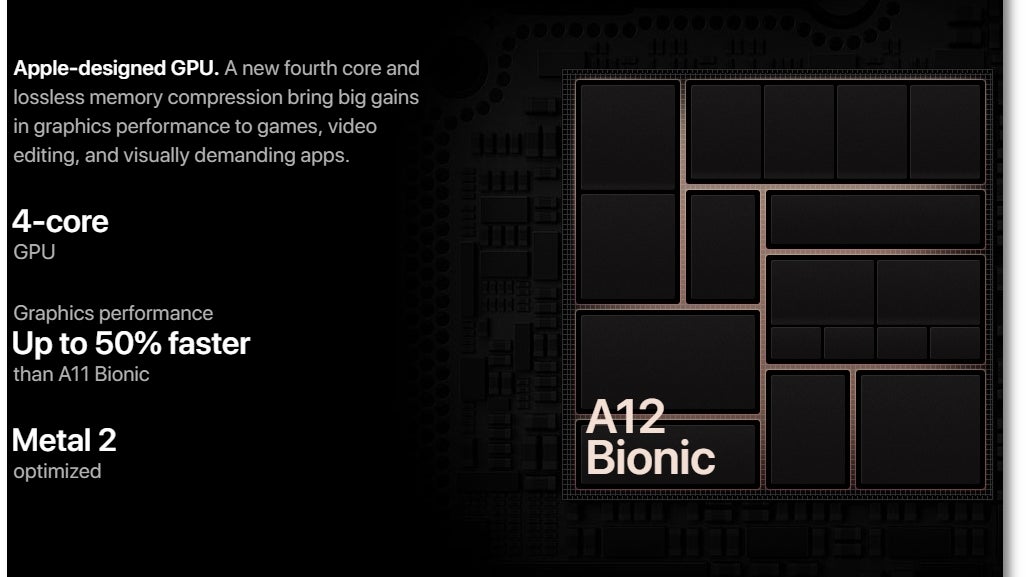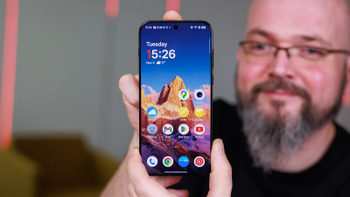These iPhone XS vs S9 vs OnePlus 6 benchmarks test A12 Bionic as the killer chipset

A lot of you already have in their hands the world's first phones that carry processors crafted by the 7nm production node method. Yes, we are talking about Apple's new iPhone XS and XS Max.
With the introduction of the A12 Bionic, even though it is made by the TSMC foundry with the first generation of the 7nm node, instead of with Samsung's superior extreme ultraviolet (EUV) lithography, the performance gap is expected to become even wider. By how much?
Apple's proprietary chipset architecture is tailor-made for its mobile operating system, so it has a real performance advantage before, say, off-the-shelf Snapdragons of this world, even when the production node was 10nm in Apple's previous A11 Bionic processor.
With 30%-300% better scores than the best Androids, A12 Bionic is now the chipset to beat
In fact, Apple's processors are so powerful that the company deliberately throttled them significantly when an iPhone battery degraded below a certain threshold, so as to avoid random reboots by peak power requests, resulting in the #battterygate brouhaha. On the plus side, it brought on $29 battery replacements for older models, a perk that is now coming to an end.Well, we put the new iPhones with the freshly squeezed A12 Bionic chipset, through some mobile benchmark testing, and the dry synthetic numbers show it will be the phone processor to beat now, like the A11 before it.
Apple iPhone XS vs iPhone X vs... iPad Pro
Apple touts just 15% performance increase over the A11 Bionic processor cores but adds 50% faster graphics with the new, fourth GPU core, and lossless memory optimization. As you can see below, in some of the comprehensive all-rounder benchmarks like AnTuTu the recorded increase in performance can reach the whopping 60%, as in iPhone XS vs iPhone X.
We put the two-year-old iPhone 7, from which people are most likely to be upgrading to the XS, just for giggles, and the difference is 200%+ in favor of the A12. Coupled with the performance-optimized iOS 12, this year's iPhones should perform smooth as silk.
Apple iPhone XS vs Galaxy S9 vs LG G7 vs OnePlus 6
On the whole, this is not a fair fight for Androids, as not only are we comparing 10nm vs 7nm processors, but also custom chipset architecture optimized for an in-house operating system, against a smorgasbord of chippery and interface overlays.
Still, the best Android has to offer now does synthetics on par with last year's iPhones, while the new XS and XS Max blow them out of the water. The performance difference is largest in browser benchmarks, up to 300%, while in multi-core tests the A12 Bionic is just 30% ahead of the best Androids can muster, arguably on account of Apple's throttling shenanigans.
This extra power should be most noticeable in gaming or browsing activities, but the everyday interface grind and app transitions would get a worthy boost, too.
Follow us on Google News










![A new Android bug is making it impossible to install new apps. Are you affected? [UPDATE]](https://m-cdn.phonearena.com/images/article/176703-wide-two_350/A-new-Android-bug-is-making-it-impossible-to-install-new-apps.-Are-you-affected-UPDATE.webp)

Things that are NOT allowed:
To help keep our community safe and free from spam, we apply temporary limits to newly created accounts: